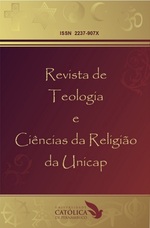1700TH YEAR OF THE COUNCIL OF NICAEA AND 60TH YEAR OF THE CLOSURE OF VATICAN II DOSSIER NO. 1
DOI:
https://doi.org/10.25247/paralellus.2024.v15n37.p321-325Keywords:
Ecumenism, Nicea, Vatican IIAbstract
The Council of Nicaea (325) stands as a pivotal milestone in the history of Christianity due to the themes it addressed, the documents it promulgated, the manner in which it was convened, the diversity of its reception immediately following its conclusion, and its enduring relevance to the life of the Church, particularly in the context of ecumenical dialogue. The research project "Always Nicaea: Present, Ecumenical Memories, and History of the Council of Nicaea (2023–2025)," whose preliminary findings are presented here, seeks to foster a deeper understanding of the Council of Nicaea and its reception. This is pursued through a critical analysis of the sources, interpretations developed over the centuries, its presence in the documents of the Churches, and scholarly studies dedicated to the Council, with particular attention to the academic contributions of recent decades. The ultimate goal is to provide a framework that supports the Church in rediscovering the vibrancy of this memory, enabling it to address the central challenges of its mission in the 21st century, while recognizing the enduring significance of the Council of Nicaea.
Downloads
References
H. JEDIN, Breve storia dei concili. I ventuno concili ecumenici nel quadro della storia della Chiesa, Brescia, 1978.
Downloads
Published
Issue
Section
License
Copyright (c) 2024 Riccardo Burigana, Luiz Carlos Luz Marques

This work is licensed under a Creative Commons Attribution 4.0 International License.
A submissão de originais para a Paralellus implica a transferência, pelos autores, dos direitos de publicação eletrônica. Os direitos autorais para os artigos veiculados neste periódico são do autor; todavia, são da revista os direitos sobre a primeira publicação. Os autores somente poderão fazer uso dos mesmos resultados em outras publicações se indicarem, claramente, que a Paralellus foi o meio originalmente utilizado. Em decorrência do fato de ser a Paralellus uma revista de acesso público, é permitida a utilização gratuita dos artigos em aplicações educacionais e/ou científicas não comerciais, desde que respeitando-se a exigência de citação da fonte (Texto atualizado em 16-11-2020).
















